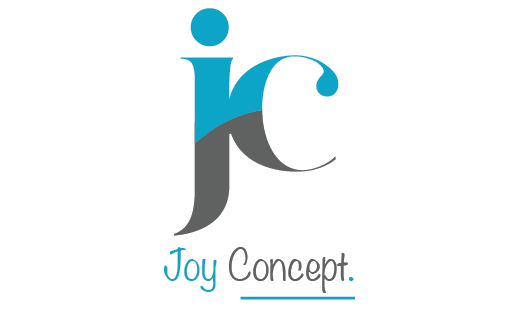- December 13, 2023
- Posted by: Admin
- Category: Blog 2, Uncategorized

As the clock strikes midnight on New Year’s Eve, millions around the globe embark on a tradition that spans centuries – the creation of New Year resolutions. These well-intentioned promises to change one’s habits, lifestyle, or mindset are often made with the best of intentions, yet statistics show that a significant number of resolutions fizzle out before the end of January. According to the Forbes Health/One Poll survey the average resolution lasts just 3.74 months. Only 8% of respondents tend to stick with their goals for one month, while 22% last two months, 22% last three months and 13% last four months.
Why is it that these annual pledges to self-improvement often fail to yield the desired results?
Unrealistic Expectations:
It’s the stroke of midnight, and suddenly we’re convinced we can morph into a Marvel superhero overnight. From couch potato to marathon runner? Sure, why not? We set the bar so high; even Olympic pole vaulters would get a nosebleed.
One of the primary reasons New Year resolutions often fall flat is the tendency to set unrealistic goals. In the excitement of a fresh start, individuals may aim for drastic changes in a short period, underestimating the time and effort required to achieve such transformations. Unrealistic expectations can lead to frustration and disappointment, causing many to abandon their resolutions prematurely.
Lack of Specificity:
Vague and generalized resolutions are another stumbling block. Resolutions like “get fit” or “eat healthier” lack the specificity needed for successful goal-setting. Without clearly defined objectives and actionable steps, individuals may find it challenging to measure progress or stay motivated over time.
Overemphasis on the Calendar Change:
The turning of the calendar is symbolic, but it doesn’t inherently foster behavioral change. Relying solely on the New Year as a catalyst for transformation may overlook the continuous effort and dedication required for meaningful progress. True change often involves ongoing commitment, not just a fleeting burst of motivation that accompanies the changing of the year.
Failure to Address Underlying Issues:
Many New Year resolutions focus on surface-level changes without addressing the underlying issues that contribute to the need for change. Without understanding the root causes of certain behaviors or habits, individuals may struggle to sustain new habits in the face of adversity or stress.
Lack of Accountability and Support:
Embarking on a journey of self-improvement can be challenging, and having a support system in place can make a significant difference. Without accountability partners or a supportive community, individuals may find it difficult to stay on track, especially when faced with obstacles or setbacks.
All-or-Nothing Mentality:
We trip, we fall, we spill coffee on our pristine resolutions list – and suddenly, it’s all over. Instead of laughing off the stumble, we throw in the towel, convinced we’re a lost cause. It’s like a slapstick comedy, but with fewer pratfalls and more existential crises.
The all-or-nothing mentality is a common pitfall in resolution-making. If individuals perceive a minor setback as complete failure, they may become disheartened and abandon their resolutions altogether. Cultivating a more forgiving mindset that acknowledges setbacks as part of the process can help foster resilience and persistence.
While the tradition of making New Year resolutions persists, it’s essential to recognize the common pitfalls that contribute to their high failure rates. Unrealistic expectations, lack of specificity, overemphasis on the calendar change, failure to address underlying issues, lack of accountability, and an all-or-nothing mentality can collectively sabotage the best intentions. Instead of relying solely on the New Year to drive change, adopting a mindset of continuous improvement, and setting realistic, specific, and sustainable goals throughout the year can lead to more lasting success in the pursuit of personal growth and development.
So, here’s to another year of a better you.
The Perennial Pitfall: Why New Year Resolutions Often Fall Flat
As the clock strikes midnight on New Year’s Eve, millions around the globe embark on a tradition that spans centuries – the creation of New Year resolutions. These well-intentioned promises to change one’s habits, lifestyle, or mindset are often made with the best of intentions, yet statistics show that a significant number of resolutions fizzle out before the end of January. According to the Forbes Health/One Poll survey the average resolution lasts just 3.74 months. Only 8% of respondents tend to stick with their goals for one month, while 22% last two months, 22% last three months and 13% last four months.
Why is it that these annual pledges to self-improvement often fail to yield the desired results?
Unrealistic Expectations:
It’s the stroke of midnight, and suddenly we’re convinced we can morph into a Marvel superhero overnight. From couch potato to marathon runner? Sure, why not? We set the bar so high; even Olympic pole vaulters would get a nosebleed.
One of the primary reasons New Year resolutions often fall flat is the tendency to set unrealistic goals. In the excitement of a fresh start, individuals may aim for drastic changes in a short period, underestimating the time and effort required to achieve such transformations. Unrealistic expectations can lead to frustration and disappointment, causing many to abandon their resolutions prematurely.
Lack of Specificity:
Vague and generalized resolutions are another stumbling block. Resolutions like “get fit” or “eat healthier” lack the specificity needed for successful goal-setting. Without clearly defined objectives and actionable steps, individuals may find it challenging to measure progress or stay motivated over time.
Overemphasis on the Calendar Change:
The turning of the calendar is symbolic, but it doesn’t inherently foster behavioral change. Relying solely on the New Year as a catalyst for transformation may overlook the continuous effort and dedication required for meaningful progress. True change often involves ongoing commitment, not just a fleeting burst of motivation that accompanies the changing of the year.
Failure to Address Underlying Issues:
Many New Year resolutions focus on surface-level changes without addressing the underlying issues that contribute to the need for change. Without understanding the root causes of certain behaviors or habits, individuals may struggle to sustain new habits in the face of adversity or stress.
Lack of Accountability and Support:
Embarking on a journey of self-improvement can be challenging, and having a support system in place can make a significant difference. Without accountability partners or a supportive community, individuals may find it difficult to stay on track, especially when faced with obstacles or setbacks.
All-or-Nothing Mentality:
We trip, we fall, we spill coffee on our pristine resolutions list – and suddenly, it’s all over. Instead of laughing off the stumble, we throw in the towel, convinced we’re a lost cause. It’s like a slapstick comedy, but with fewer pratfalls and more existential crises.
The all-or-nothing mentality is a common pitfall in resolution-making. If individuals perceive a minor setback as complete failure, they may become disheartened and abandon their resolutions altogether. Cultivating a more forgiving mindset that acknowledges setbacks as part of the process can help foster resilience and persistence.
While the tradition of making New Year resolutions persists, it’s essential to recognize the common pitfalls that contribute to their high failure rates. Unrealistic expectations, lack of specificity, overemphasis on the calendar change, failure to address underlying issues, lack of accountability, and an all-or-nothing mentality can collectively sabotage the best intentions. Instead of relying solely on the New Year to drive change, adopting a mindset of continuous improvement, and setting realistic, specific, and sustainable goals throughout the year can lead to more lasting success in the pursuit of personal growth and development.
So, here’s to another year of a better you.
